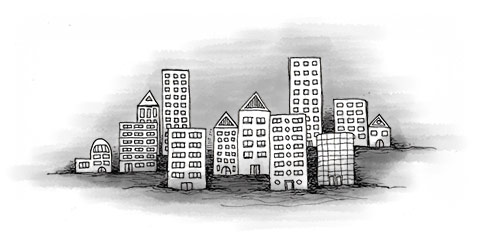A rental lease in Hong Kong is usually for two years, with a break clause after one year with two or three months’ notice. This break clause gives either or both parties the option to terminate the agreement prior to the lease expiry date. If you want to break the lease before the end of the contract, this requires a written notice. If you are wanting to exit the lease in advance of a year you may need to pay all or some of the remaining period.
There is a standard government lease but some landlords add in their own clauses, so make sure you understand what you’re signing. Many lease contracts are written in English, if it is not you should get a trustworthy translation.
Special terms in a lease can include the tenant’s responsibility for repairs, a ban on sub-letting and a requirement to take out indemnity insurance. Make sure you understand all binding clauses and liabilities (such as structural repairs). Some landlords do not allow pets, so if you have or plan to have animals, check before you agree to move in. In many cases, even if the tenancy agreement specifies no pets, you may be able to negotiate special permission from the landlord.
If something seems wrong, address this point immediately with your agent or your landlord. If you still feel unsure, you get a lawyer to check the contract. If you share the lawyer with the landlord, then you share the fees too. Charges are based on the scales set by The Law Society of Hong Kong (2846 0500, www.hklawsoc.org.hk ).
Management fees and deposits
Besides rent, in most properties you will also have to pay ongoing management fees to cover the maintenance of facilities, a cleaning and security service, and sometimes maintenance and air-conditioning. All apartments are also liable for government rates, which are roughly 5% of the annual rental, paid quarterly. In practice, who pays government rates will depend on the terms of the agreement between the owner and occupier of the property. In the absence of any agreement to the contrary, liability of the rates rests with the occupier. When viewing properties, the rent will either be quoted either as ‘inclusive’ (meaning management and rates are included), or ‘exclusive’ (meaning rates will be quoted and paid for separately). If your property is “exclusive” you will need to ensure that you pay for all your utility bills (telecommunication installation and service charges included) directly to your provider, as this is your responsibility as the tenant. Most rental prices are quoted as "inclusive" to avoid confusion, but some agents quote "exclusive" prices to make more expensive apartments look more attractive.
A month’s rent is often required as a holding deposit while the lease is being signed. This is later then used as the first month’s rent or is refundable, but make sure you get this in writing. You will probably also have to pay deposits for gas, electricity and water connections. Sometimes landlords will let you continue to use of utilities and pay the monthly charges without having to go through the reconnection and deposit.
The standard security deposit in Hong Kong is worth of 2-3 months’ rent which includes rental plus management fee, government rates (estimate) and other charges, if applicable. The security deposit will be refunded if there is no breach of any of the Terms and conditions in the Lease Agreement. However, standard Tenancy Agreements tend to include a paragraph which states that in the case of loss or damage (other than from normal wear and tear), the Landlord is eligible to deduct the total amount of the loss from the security deposit. Additionally, the amount of unpaid rent and fees will also be deducted from your deposit. For this reason it is wise to ensure that the landlord issues a receipt once the deposit is received. Usually the security deposit is returned within 14-30 working days.
Signing the lease
Unless your company signs your lease for you, you’ll need a copy of your identity card and your company’s letter of employment to be able to make the signature. Upon signature, two copies of the contract are sent to the Inland Revenue for official registration and are then returned to the landlord and the tenant. The state collects a stamp duty fee for this which is shared by you and your landlord. Some landlords and tenants ignore the registration so that the tax does not need to be paid.
Renewing the lease
To renew a lease, the landlord will send you a notice enquiring about your intentions. In many cases you can just continue to pay month by month, with either side giving one month’s notice, in some cases the landlord will propose a new lease agreement.
Often the same lease continues but the rent will change depending on the property market. Rent increases are not regulated in Hong Kong, so depend much more on market conditions than other places.
If rental prices have been rising, a rent increase could be 30%. If you can’t afford this, tough! You will have to move out and this can happen quite often when prices rise suddenly. Check about rent increases three months before your lease expires to avoid unpleasant surprises. That should give you enough time to find a new home if you have to move out.
If the market is down, you can try negotiating a lower rent or expect no increase. Don’t be afraid or shy of re-negotiating the rent (by then you will probably have a fair idea of the way the Chinese approach negotiation, so this will not be an issue for you). In some cases, landlords don’t want to decrease the rent but will offer a period of free rent, throw in some appliances or furnishings, or fix up parts of the house at your request. Depending on your cultural background you might not be good at this, but it is in your interest!
Illegal structures
In some cases, you might be promised a roof, balcony or storage rooms and then won’t find them in your lease agreement. If they’re not stated in the written agreement, chances are that the roof or additional space may be an ‘illegal structure’ (e.g. one without permission). In this case you risk losing this space if it is identified in a government inspection and the landlord is asked to remove it.


